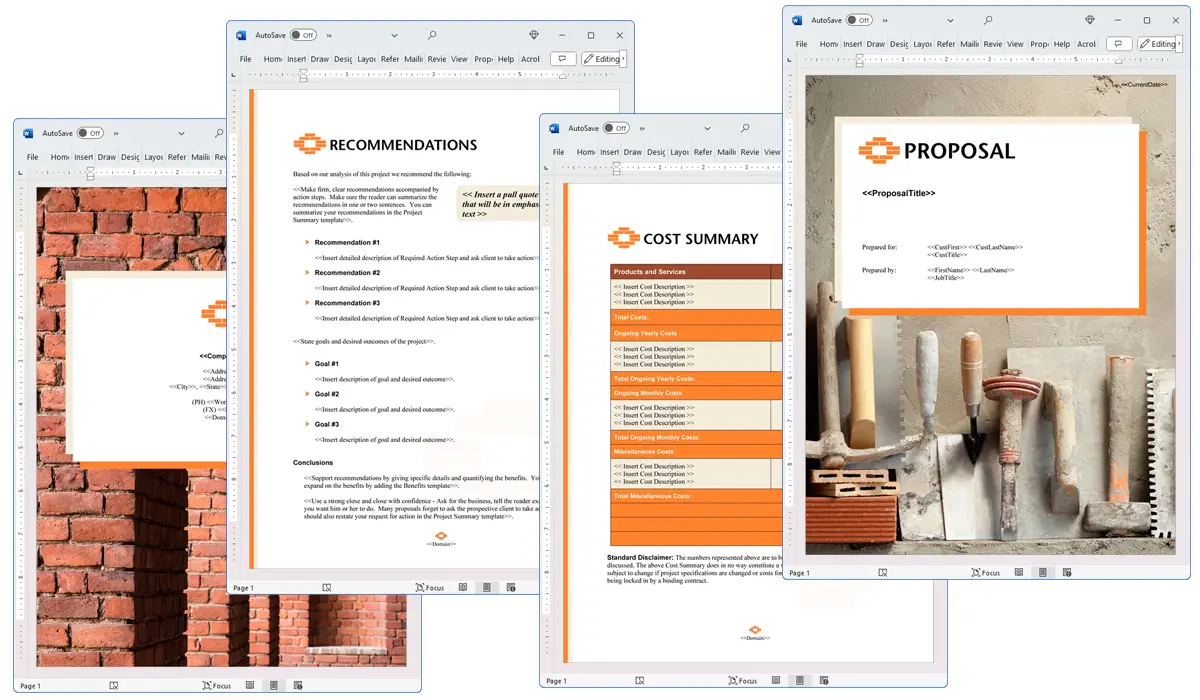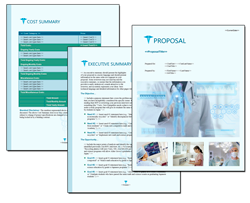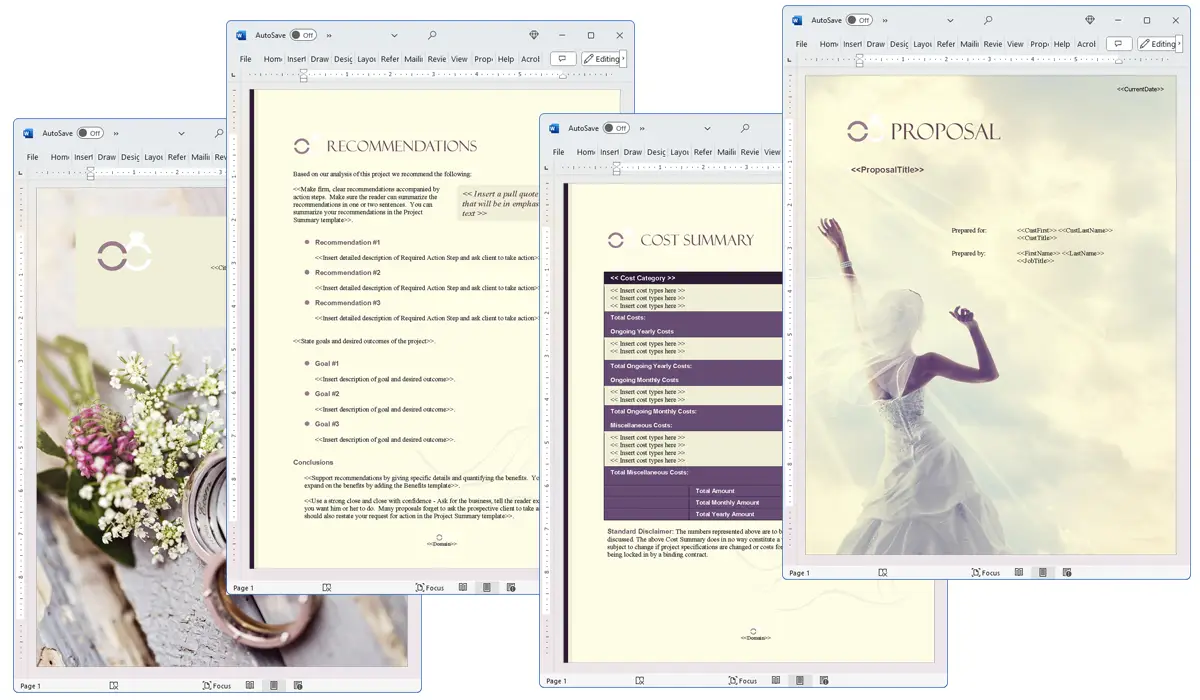What is the Payload chapter used for?
Proposal Kit Professional Bundle adds more design themes, all six Contract Packs,
a project management library, and Expert Edition software.

Illustration of Proposal Pack Construction #8
We include this Payload chapter template in every Proposal Pack, along with thousands more. You assemble this chapter with others in various combinations to create custom-tailored business proposals, plans, reports, and other documents. Proposal Packs apply custom visual designs to the templates, giving the final documents a consistent professional finish.
 DOWNLOADABLE, ONE-TIME COST, NO SUBSCRIPTION FEES
DOWNLOADABLE, ONE-TIME COST, NO SUBSCRIPTION FEES
Overview of the Payload Chapter
The Payload chapter is an important component used in constructing business proposals, especially when the details of transported goods or passengers need to be outlined. In the business context, understanding the payload is vital for logistics, supply chain management, and transportation industries, where the capacity and limitations of carrying loads are regularly analyzed and presented. This chapter allows businesses to provide clear, detailed descriptions regarding what their vehicles, aircraft, or vessels can carry, enhancing the transparency and specifics of a proposal.
How is the Payload Chapter Used?
In a business proposal, the Payload chapter is used to provide a comprehensive analysis of the cargo capacity of a vehicle or transport method proposed by a company. It plays an important role when companies aim to establish trust and reliability by showcasing their capabilities in handling various types of load. This chapter helps in setting realistic expectations for potential clients or partners about what can be transported, the conditions required for transport, and how it aligns with their needs.
What is Included in the Payload Chapter?
The Payload chapter typically includes:
- A detailed description of the type of cargo or passengers that can be transported.
- The maximum capacity of the vehicle, aircraft, or vessel in terms of weight and volume.
- Any specific configurations or modifications that affect the payload.
- Constraints and limitations such as legal weight limits, volume restrictions, or special handling requirements.
- Safety and compliance information relevant to the payload.
Use Case Examples for the Payload Chapter
- Supply Chain Management: Proposing a new fleet of trucks to enhance distribution capabilities, detailing each truck's payload capacity.
- Logistics Services: Offering a logistics plan for a company that needs to transport temperature-sensitive goods, outlining how payloads will be managed and controlled.
- Transportation Solutions: Introducing a new shipping route that includes multiple types of cargo, with details on how each type will be handled according to its specific requirements.
Key Takeaways
- The Payload chapter is important for detailing the cargo-carrying capacity and specifications in transport-related proposals.
- It helps set transparent and realistic expectations about transportation capabilities for potential clients.
- This chapter is particularly important in industries such as logistics, supply chain management, and transportation.
- Including detailed payload information can enhance the credibility of a proposal by showcasing attention to detail and adherence to safety and legal standards.
- Effective use of the Payload chapter can significantly impact the success of a business proposal by clearly communicating capacity and operational capabilities.

Illustration of Proposal Pack Medical #7
 What Our Clients Say
What Our Clients SayOriginally had little need to write proposals. But business has changed and has become more proposal-intensive. This kit has taken much work out of the writing for our employees. Thanks for making it simple!"
 4.7 stars, based on 842 reviews
4.7 stars, based on 842 reviewsRelated Chapters
Samples Using the Payload Chapter
Document Layouts Using the Payload Chapter

The Payload chapter and other chapters are integrated into a Word document as illustrated here in the Proposal Pack Wedding #5 design theme. There are hundreds of design themes available, and every design theme includes the Payload chapter template.
A proper business proposal will include multiple chapters. This chapter is just one of many you can build into your proposal. We include the complete fill-in-the-blank template in our Proposal Pack template collections. We also include a library of sample proposals illustrating how companies in different industries, both large and small, have written proposals using our Proposal Packs. This template will show you how to write the Payload.
We include a chapter library for you to build from based on your needs. All proposals are different and have different needs and goals. Pick the chapters from our collection and organize them as needed for your proposal.
Using the Proposal Pack template library, you can create any business proposal, report, study, plan, or document.
 Ian Lauder has been helping businesses write their proposals and contracts for two decades. Ian is the owner and founder of Proposal Kit, one of the original sources of business proposal and contract software products started in 1997.
Ian Lauder has been helping businesses write their proposals and contracts for two decades. Ian is the owner and founder of Proposal Kit, one of the original sources of business proposal and contract software products started in 1997.By Ian Lauder
 Published by Proposal Kit, Inc.
Published by Proposal Kit, Inc.


 Cart
Cart
 Facebook
Facebook YouTube
YouTube X
X Search Site
Search Site